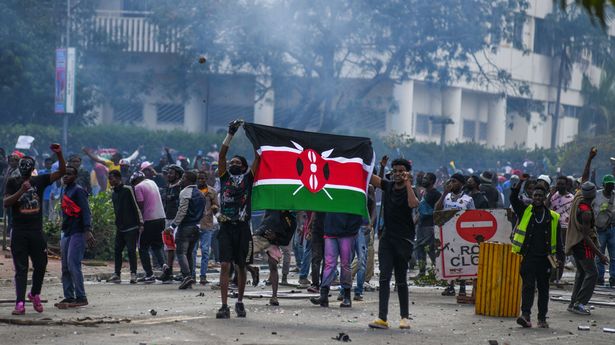Kenya’s President Ruto backs down from signing controversial finance bill after deadly protests

Kenyan President William Ruto announced on Wednesday that he will not sign the contentious Finance Bill 2024, yielding to widespread protests that swept the nation and reportedly resulted in the deaths of at least 23 people.
In a televised address, Ruto acknowledged the public outcry against the bill, stating, “Having reflected on the continuing conversation regarding the content of the finance bill 2024, and listening keenly to the people of Kenya who have said loudly that they want nothing to do with this Finance Bill 2024, I concede, and therefore I will not sign the 2024 finance bill.”
He emphasized, “The people have spoken,” noting the bill’s passage had sparked significant dissatisfaction and led to tragic consequences including loss of life, property destruction, and damage to constitutional institutions.
Kenya, typically noted for its stability, experienced escalating protests over the bill, initially introduced by the government to manage public debt.
Last week, some tax increases were scrapped, including a proposed 16% value-added tax on bread, taxes on motor vehicles, vegetable oil, and mobile money transfers. However, these concessions failed to quell public unrest amid rising living costs.
The protests turned violent on Tuesday as security forces deployed tear gas and live ammunition against demonstrators.
In Nairobi, scenes of chaos included government buildings set ablaze and the theft of a ceremonial mace from parliament during clashes between police and protesters.
According to Kenya’s Police Reforms Working Group, at least 23 people lost their lives in the unrest, with allegations that police targeted young, unarmed protesters.

This account differed from Ruto’s report of six deaths, as he extended condolences to the affected families, describing the incidents as “very unfortunate.”
Acknowledging the need to move forward, Ruto pledged to engage with the youth leading the protests to hear their ideas and suggestions.
His decision marked a reversal from his previous firm stance, expressed in a national address following the parliament’s breach, where he labeled Tuesday’s events a severe threat to national security and criticized the bill’s detractors as “dangerous.”
Kenyan analyst Herman Manyora remarked on the timing of Ruto’s decision, stating, “His announcement should have come earlier. He has done today what he should have done two days ago to avoid what we went through yesterday.”
Source-CNN




